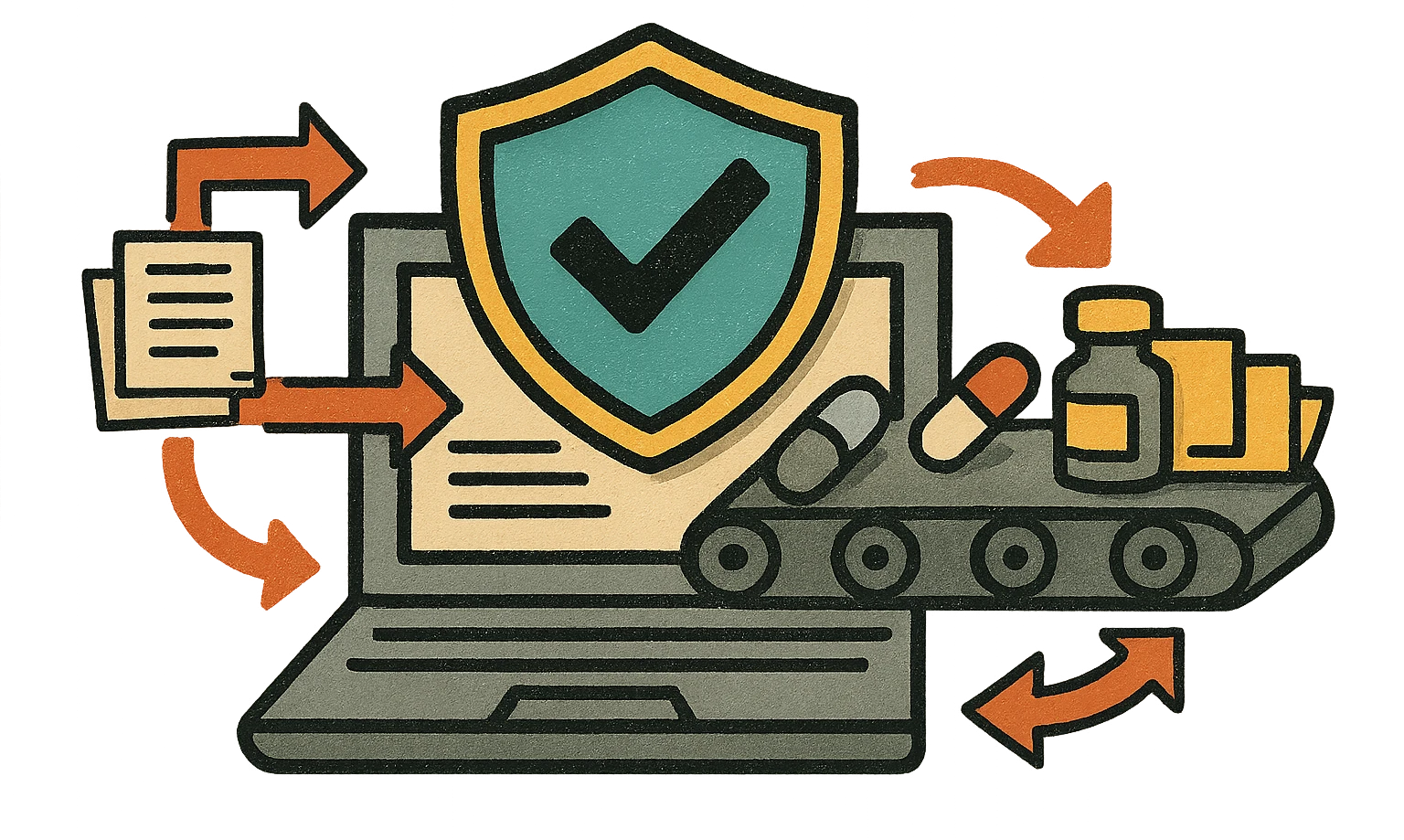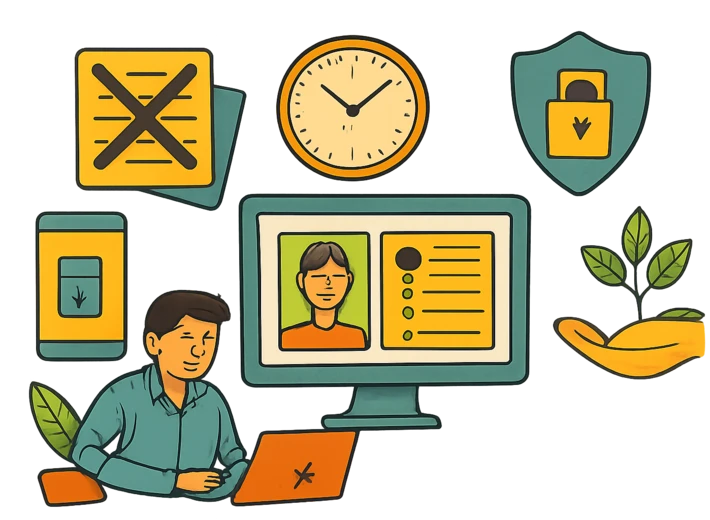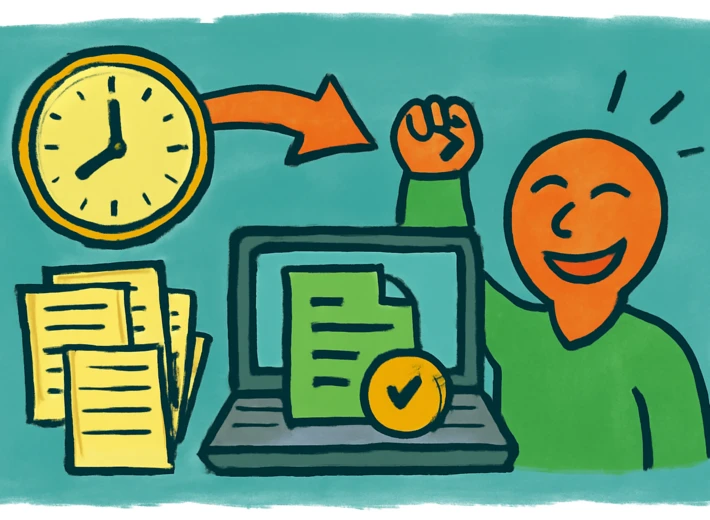4 Tricks for Easy Compliance with Pharmaceutical Standards

Sometimes they are like acrobats, balancing between the varieties of Good Pharmaceutical Practices (GxP).
In short, all of them (GMP, GLP, GCP, GDP, etc.) aim to ensure the quality, safety, and efficacy of pharmaceutical products.
Pharmaceutical companies must not only comply with GxP standards but also prove compliance in case of an audit.
And what does every company want?
To be efficient and profitable.
Often, audits require tens or hundreds of man-hours of work for compliance. For a certain period, business thinking must stop, and all team efforts are directed towards the audit. And if there are no information and process management systems implemented, an audit might find that the company does not meet regulatory standards.
There are 4 tricks for companies to be sure of their compliance.
Which lead to 4 results that the business needs:
- Hundreds of hours saved on references - everything is done with a few clicks and in minutes.
- Reduced human resource expenses - your team can focus on profitable activities rather than administrative work.
- Increased revenues due to much higher efficiency.
- Complete compliance with pharmaceutical standards in quality management at any given moment.
Here's how to ensure GxP compliance is managed effectively and demonstrably in seconds:
1. Maintaining Proper Documentation
Document management and control are a challenge for any company, and additionally, as a pharmaceutical company, you are required to store data on products and studies for long periods. This means you need to store, organize documentation, and be able to make quick references.
2. Management and Control
It is necessary to achieve project and quality management without significant resources, to monitor the work of teams, their tasks, and their status, the development of processes, and every other element of the company's activity.
3. Traceability
For all managers, it's important to know what's happening in the company at any given moment. For this purpose, easy traceability and quick references and reports are needed to ensure clarity about processes, tasks, finances, and the current state of the company.
4. Security
The loss of information on good pharmaceutical practices is unthinkable. All documents and data must not only be stored but also be completely secure at every moment. This security is necessary not just for peace of mind but also as a guarantee that the business will never stop due to technical reasons.
All this sounds like a lot of work and quite a bit of human effort.
Teams dealing with standard compliance often don't understand IT issues. And the IT team might fail to take an interest in compliance? With such complex and diverse requirements, it's hard to rely only on human resources. It's expensive. And mistakes are possible.
Therefore, it is advisable to use a solution for pharmaceutical companies, with which audit preparation can take a few hours, not weeks of human labor and a lot of worries.
Similar Blog Posts

Digital Employee File – 7 Reasons to Go Digital
In the era of digital transformation, where 77% of employees are more productive when provided with digital tools according to PwC, the digital employee file becomes a key success factor for any organization.
22 August 2025

ERP vs. CRM?
If your organization has previously implemented an ERP solution and you've held the belief that it will be the only system used within the company, you may want to consider what a sub-module of the ERP system is CRM and how to utilize it. The truth is that CRM is an entirely separate type of software system, and in a significant number of companies worldwide, ERP and CRM work in parallel, exchanging data to automate processes within the company.
24 October 2023

What is ERP and Does It Have a Place in My Company?
Lamborghini is a car, but so is a Zhiguli. There is a relatively detailed classification of software solutions for business management, and by some sadistic rule, most of them are abbreviations. If we check in the dictionary what ERP means, we will find that it is an abbreviation for Enterprise Resource Planning.
20 August 2025
